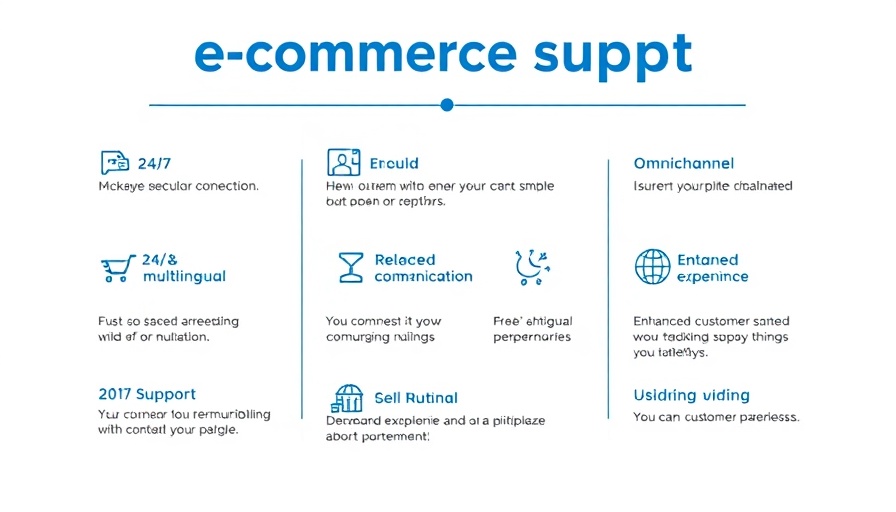
Understanding the Five Tiers of Offshore Support in the Philippines
In the world of business process outsourcing (BPO), understanding the varying levels of support can greatly influence operational efficiency and customer satisfaction. The Philippines has emerged as a leading destination for offshore support services, characterized by five distinct support tiers that cater specifically to diverse business needs. Each tier is designed to respond effectively to specific demands, ensuring service providers can leverage the unique advantages the Philippine workforce offers.
Why Choose Offshore Support?
Offshore support is more than just cutting costs—it's about accessing a skilled talent pool equipped to drive business growth. For professionals, business owners, and marketers, understanding these support levels is crucial to maximizing outsourcing efficiencies. As businesses refine their strategies, especially with the rise of digital marketing trends, the right offshore collaboration can greatly enhance SEO updates, content marketing strategies, and analytics reporting.
Tier 1: Basic Support Services
At the foundation lies Tier 1 support, which encompasses basic customer service functions such as answering inquiries, managing complaints, and providing information about services and products. Typically, professionals in this tier operate through calls, emails, or chat systems. The ARPA methodology indicates that businesses looking to optimize user experience should utilize Tier 1 as a means of ensuring customer satisfaction and loyalty through immediate assistance.
Tier 2: Technical Support
Building on the foundation of Tier 1 is Tier 2, which involves handling more complex inquiries that require specific technical knowledge. This tier is often staffed with individuals who possess specialized training or qualifications pertinent to the company's products or services. Tier 2 support plays a critical role in conversion rate optimization—addressing customer concerns effectively can significantly reduce drop-off rates in digital marketing funnels.
Tier 3: Advanced Support Solutions
As companies shift towards automation and AI integration, Tier 3 support emerges to tackle advanced issues that require in-depth problem solving. This tier often collaborates closely with product and engineering teams to identify solutions to unique customer challenges. With the rise of marketing technology trends, the importance of having a robust Tier 3 support system cannot be overstated; it aligns directly with improving marketing ROI through data-driven insights and customer feedback channels.
Tier 4: Customized Solutions
Tier 4 support is distinguished by its focus on providing tailored solutions to meet the specific needs of larger clients or unique projects. This level often involves comprehensive project management and ongoing analysis to enhance customer engagement strategies and personalized marketing efforts. Through integrating visual content marketing techniques and data analysis, businesses can ensure that every interaction adds value and strengthens client relationships.
Tier 5: Strategic Partnerships
Finally, Tier 5 represents the pinnacle of offshore support, characterized by strategic partnerships that involve shared goals and resources between the outsourcing provider and the client. In this tier, companies engage not just in operational tasks, but in collaborative strategy development, leveraging insights from various fields, including e-commerce SEO techniques and digital marketing tools. Engaging in these partnerships can enhance innovation potential and drive results that lift overall brand awareness.
Conclusion: Navigating the Support Landscape
Understanding the intricacies of these tiers is crucial for any organization considering offshore support in the Philippines. As businesses continue to evolve, aligning these support systems with their operational and marketing strategies can significantly impact overall efficiency and customer satisfaction. Considering the growing trends in digital marketing and analytics, having the right support structure in place will empower companies to reach their full potential.
For further insights, consider exploring marketing automation tools and digital marketing certifications that can further strengthen your organization's outsourcing efforts.
 Add Row
Add Row  Add
Add 




Write A Comment